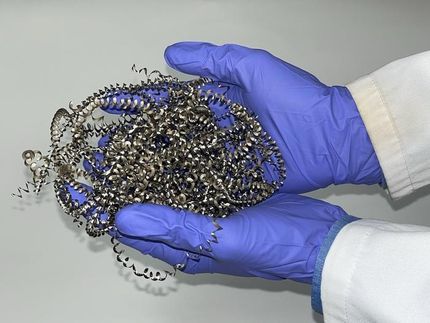Beans means hydrogen
Research describes the use of the humble soy bean to produce a cheap and efficient non-precious metal catalyst for sustainable hydrogen production.
A barrier to cheap hydrogen for energy is the high cost and low availability of the platinum catalyst used in the electrocatalytic production process. To overcome this, US scientists have produced a catalyst using the abundant transition metal molybdenum (~1500 times cheaper than platinum) and ground soy beans, that competes well with the platinum catalyst.
Previous research has shown molybdenum carbide (Mo2C) to be a good catalyst for hydrogen production, but it is unstable in strong acid, which is used during the process. The team sought to produce an efficient molybdenum catalyst using components from nature and worked with two high school students from New York to test different forms of biomass, especially those with high protein content. They found that high protein soybeans made the best catalyst when mixed with molybdenum, proposing that Mo2C and Mo2N formed from the protein act in synergy with one another – with the active but acid-unstable Mo2C being balanced by the corrosion resistant Mo2N.
The scientists demonstrated that the molybdenum-soy bean catalyst could be produced via a simple and cost-efficient synthesis and showed the catalyst to be highly durable in acidic solution over a long operation period.
Other news from the department science

Get the chemical industry in your inbox
By submitting this form you agree that LUMITOS AG will send you the newsletter(s) selected above by email. Your data will not be passed on to third parties. Your data will be stored and processed in accordance with our data protection regulations. LUMITOS may contact you by email for the purpose of advertising or market and opinion surveys. You can revoke your consent at any time without giving reasons to LUMITOS AG, Ernst-Augustin-Str. 2, 12489 Berlin, Germany or by e-mail at revoke@lumitos.com with effect for the future. In addition, each email contains a link to unsubscribe from the corresponding newsletter.



























































